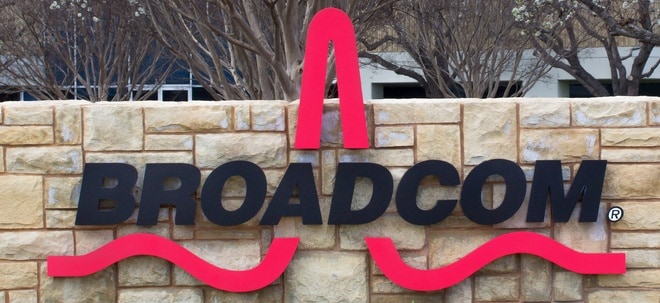Diakonos Oncology Presents Promising Phase I Results of Dubodencel (DOC1021) for the Treatment of Glioblastoma at the ASCO 2025 Annual Meeting
- Favorable safety profile and encouraging early efficacy signals support advancement to Phase II trial of dendritic cell vaccine for the treatment of glioblastoma.
HOUSTON, June 2, 2025 /PRNewswire/ -- Diakonos Oncology Corp., a clinical-stage biotechnology company developing a new generation of immunotherapies to treat challenging and aggressive cancers, today announced promising results from its Phase I clinical trial of Dubodencel (DOC1021), a patient-derived dendritic cell (DC) therapy for the treatment of patients with glioblastoma. The trial included patients with particularly challenging disease characteristics and demonstrated a favorable safety profile along with early signs of clinical activity. These results support advancement to a randomized Phase II trial.
"This milestone represents a significant advance for Diakonos Oncology and, more importantly, for the patients who urgently need better treatment options for glioblastoma and other difficult-to-treat cancers," said Jay Hartenbach, President and Chief Operating Officer of Diakonos Oncology. "The favorable safety profile and encouraging efficacy signals observed in our Phase I trial support the progression to Phase II. We look forward to advancing this next stage to further assess the potential of our dendritic cell therapy platform and deliver new hope to patients."
The study evaluated Dubodencel (DOC1021), a patient-derived immunotherapy prepared from mobilized peripheral blood mononuclear cells (PBMCs), loaded with autologous tumor lysate and amplified tumor mRNA, and administered near deep cervical lymph nodes. Sixteen newly diagnosed patients, with a median age of 61 years (range 47-73), of which 94% were MGMT unmethylated, and 25% with subtotal resection, completed three courses of the injection every two weeks alongside weekly pegylated interferon (peg-IFN), following chemotherapy and radiation. Four dose levels, ranging from 3.5-36 million total cells, were tested. Two additional patients with recurrent glioblastoma were also treated.
Key findings included:
- Excellent Safety Profile: The most common adverse events (AEs) were mild flu-like symptoms and injection-site reactions, with no dose-limiting toxicities reported.
- Immune Response: Post-vaccination analysis showed significant expansion of CD4+ and CD8+ central memory T-cell compartments in 13 of 13 and 11 of 13 patients, respectively. Spatial transcriptomics in tumor samples from three patients revealed clusters or "immune triads" consisting of activated CD4, CD8 and migratory microglial cells, that were increased in frequency and density post-injection. After dosing, Tregs appeared to be excluded from these inflammatory triads.
- Improved Survival: The 12-month overall survival (OS) rate was 88%, significantly higher than the expected ~60% for standard of care and four patients are still alive at 22-33 months of follow-up. Recurrent glioblastoma patients survived 10-12 months.
- Insight into Pseudo-Progression: When MRI imaging showed signs of potential progression early after treatment despite lacking signs of clinical progression, those that were observed rather than re-operated had a significantly longer survival. Three of the 8 patients that were observed are still alive and clinically well without tumor on imaging. This suggests an immune-reactive microenvironment may be manifesting as pseudo-progression early after treatment.
"These results are highly encouraging, particularly for a patient population with such challenging prognostic factors, including MGMT unmethylated patients," said Dr. Joseph Georges, Neurosurgeon at Banner Health in Phoenix, Arizona. "The observed survival outcomes combined with robust immunogenicity suggest that DOC1021 has the potential to induce a clinically relevant antitumor response. Furthermore, the identification of pseudo-progression may provide important insights for refining radiographic assessment and patient management in future clinical trials."
Diakonos Oncology recently completed a $20 million SAFE (Simple Agreements for Future Equity) financing round with backing from new investors Baylor College of Medicine, The Brain Tumor Investment Fund, and the Buttonwood Titan QC Fund, and existing shareholders, reflecting strong investor confidence in the company's pioneering double-loaded dendritic cell immunotherapy platform. This funding will support the accelerated development of the Phase II glioblastoma program and enable the expansion of the platform to explore additional cancer indications.
About Dubodencel
Dubodencel, also known as DOC1021, is a first-in-class, double-loaded autologous dendritic cell therapy that uniquely combines tumor lysate and amplified tumor-derived mRNA. The immunotherapy is made with a patient's dendritic cells combined with mRNA and proteins prepared from freshly obtained patient tumor specimens.
The unique double loading approach, which mimics a viral infection, unlocks a synergistic and exponentially more powerful tumor killing TH1 response driven by dual protein and RNA antigen sourcing, and it allows targeting of the complete cancer antigen pool. Moreover, the approach does not require any molecular modification of the patient's immune cells for manufacturing, and does not require preconditioning of bone marrow or high dose IL-2 for administration. Dubodencel allows for a simple administration in the outpatient setting and broad reach via community cancer centers.
In addition to the recently opened Phase 2 GBM study, a clinical trial of Diakonos' Dubodencel is ongoing for the treatment of pancreatic cancer. Diakonos has received Fast Track designations from the FDA for both the GBM and pancreatic cancer programs, in October 2023 and May 2024, respectively. The company has also received Orphan Drug Designation for the GBM program in January 2024.
About Diakonos Oncology Corp.
Based in Houston, Diakonos Oncology Corp. is a clinical-stage biotechnology company dedicated to revolutionizing cancer immunotherapy with its proprietary double-loaded patient-derived dendritic cell therapeutic platform, focused on addressing the critical, unmet medical needs for treatment of late-state and aggressive cancers. For more information visit: https://www.diakonosoncology.com
![]() View original content to download multimedia:https://www.prnewswire.com/news-releases/diakonos-oncology-presents-promising-phase-i-results-of-dubodencel-doc1021-for-the-treatment-of-glioblastoma-at-the-asco-2025-annual-meeting-302469896.html
View original content to download multimedia:https://www.prnewswire.com/news-releases/diakonos-oncology-presents-promising-phase-i-results-of-dubodencel-doc1021-for-the-treatment-of-glioblastoma-at-the-asco-2025-annual-meeting-302469896.html
SOURCE Diakonos Oncology


